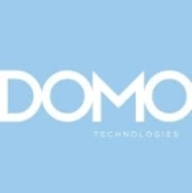

Informatica IDMC and Domo both compete in the data management and analytics category. Informatica seems to have an advantage with comprehensive data management solutions, while Domo provides easier accessibility and integration for quick analytics needs.
Features: Informatica IDMC offers seamless integration modules, flexible architecture, and robust support for multiple domains. Its cloud-based nature simplifies deployment. Domo offers ease of use, integration from various sources, and a wide array of data connectors. Its ETL capabilities and real-time data manipulation are notable but have limitations in advanced analytics.
Room for Improvement: Informatica users seek enhancements in the user interface and better SAP integration. There are concerns with the front-end GUI and the need for more ETL capabilities within MDM tools. Domo users report minor UI glitches and challenges with large data volumes. They desire more chart variety and enhanced real-time reporting.
Ease of Deployment and Customer Service: Informatica offers deployment flexibility across different cloud environments but with some setup complexity. It generally receives high customer service ratings. Domo is praised for easy deployment and a user-friendly environment, with on-demand support. However, there are mixed reviews on its customer service efficiency.
Pricing and ROI: Informatica is seen as expensive, with a complex pricing model but offers long-term ROI through improved data quality. Domo, although pricey, provides flexible licensing and end-to-end BI tools, offering simplicity and potential system consolidation benefits. Cost is a consideration for smaller firms, but its comprehensive data handling is appreciated.
If you're actually using Domo at a very limited case and you're being charged $20,000, we've seen ROI there, but once it goes really high, you really need to check your metrics and check your profit.
We see return on investment from this solution in terms of time; time reduction or cost benefits is what we are getting very good results from.
They were quite professional and in around three to five working days, they had identified where they suspected there was an issue and I was able to fix it.
It's very easy to get technical support from Domo.
Support-wise, they are good.
Due to the tool's maturity limitations, solutions are not always simple and often require workarounds.
The response time is pretty good because we have someone in-house, who is an expert from Informatica, in our team who can help us with any sort of queries usually.
If they are unsure how to resolve an issue, they keep customers informed, providing updates about progress and ensuring communication with the product team to deliver accurate responses.
The fact that you're able to easily identify the pipelines or flows that have errors, and it notifies you when you're building a pipeline where you can run previews and tell where to fix issues, is helpful.
When fetching files larger than 100 MB from SFTP or any other portal, Domo becomes slow due to the heavy file size.
Sigma, which is written for Snowflake, scales more easily than Domo.
As a SaaS platform, IDMC is quite scalable and provides complete flexibility.
I find Informatica Intelligent Data Management Cloud (IDMC) to be a sustainable and scalable solution.
In recent years, I haven't had such cases. It's quite stable and I don't have any reservations on its stability.
In terms of overall stability of the platform, it's very stable.
During that time, we faced issues from the project side as Domo was not visible in our portal.
Stability is crucial because IDMC holds business-critical data, and it needs to be available all the time for business users.
End users require a license to run their own reports and dashboards, which are fairly expensive.
Some technical aspects such as Beast Mode calculation could be improved in Domo, as it would provide more clarity and help in giving insights to clients or customer business team requirements.
One of the areas where we've had frustrations with Domo is the aesthetics. The aesthetics are quite limited compared to other BI tools such as Tableau and Power BI.
The tool needs to mature in terms of category-specific attributes or dynamic attributes.
I also want to see integration with other Informatica products, such as IICS, to leverage the metadata from EDC.
The licenses are too expensive compared to before, which is why customers are now preferring other data metadata management tools like OneTrust, Collibra, and Azure Purview.
Domo's pricing is high compared to other BI tools, and it is costly.
For long-time users, it can become expensive, but the trade-off is access to the entire platform instead of licensing different components separately.
They quoted approximately one dollar per KB.
It ranges from a quarter million to a couple of million a year.
The licenses are too expensive compared to before, which is why customers are now preferring other data metadata management tools like OneTrust, Collibra, and Azure Purview.
I think the costs are reasonable for the kinds of features that Informatica Intelligent Data Management Cloud (IDMC) has.
App Studio is valuable because it allows all the customization we needed; we can decode it, with the view and grid which are all I need, drill-downs, and everything can be done the way I need it.
I have been using it for four years and have been able to extract the information I need from it.
The most valuable feature of Domo is the fact that you can connect multiple inputs and you don't have to have a data warehouse.
The platform's ability to pull in data from other platforms without the need for an additional integration tool enhances its appeal.
Informatica Intelligent Data Management Cloud (IDMC) can connect to pretty much any application, including Oracle Analytics and Power BI, and it works quite seamlessly.
In on-premise, we call it EDC for metadata management, while in cloud-based technologies, it is known as the Metadata Command Center, which serves the same purpose as EDC concerning CDGC.
| Product | Market Share (%) |
|---|---|
| Informatica Intelligent Data Management Cloud (IDMC) | 3.6% |
| Domo | 0.7% |
| Other | 95.7% |


| Company Size | Count |
|---|---|
| Small Business | 16 |
| Midsize Enterprise | 11 |
| Large Enterprise | 20 |
| Company Size | Count |
|---|---|
| Small Business | 42 |
| Midsize Enterprise | 24 |
| Large Enterprise | 134 |
Domo is a cloud-based, mobile-first BI platform that helps companies drive more value from their data by helping organizations better integrate, interpret and use data to drive timely decision making and action across the business. The Domo platform enhances existing data warehouse and BI tools and allows users to build custom apps, automate data pipelines, and make data science accessible for anyone through automated insights that can be shared with internal or external stakeholders.
Find more information on The Business Cloud Here.
Informatica Intelligent Data Management Cloud (IDMC) integrates data quality, governance, and integration with flexible architecture. It supports multiple domains and a data models repository, delivering AI-enhanced data management across cloud-native platforms.
IDMC provides seamless integration and governance capabilities that support diverse data environments. Its comprehensive suite includes customizable workflows, data profiling, and metadata management. AI features, a data marketplace, and performance scalability enhance data management. While its interface poses challenges, its robust matching and cloud-native integration facilities are essential for complex data ecosystems. Users employ IDMC for connecting systems, ensuring data quality, and supporting data compliance but seek better pre-built rules, services, and improved connectivity, especially with platforms like Salesforce. Licensing, cost, and added AI functionalities are areas for potential refinement.
What are the key features of IDMC?IDMC is implemented across industries for data integration, metadata management, and governance. Organizations use it to connect systems, migrate data to cloud environments, and maintain data quality. They manage master data and automate business processes, facilitating data lineage and ensuring compliance with privacy regulations.
We monitor all Data Integration reviews to prevent fraudulent reviews and keep review quality high. We do not post reviews by company employees or direct competitors. We validate each review for authenticity via cross-reference with LinkedIn, and personal follow-up with the reviewer when necessary.